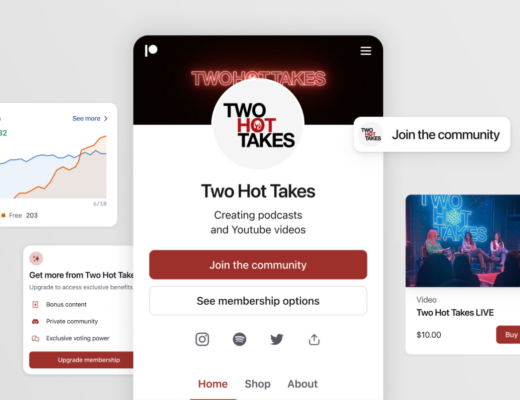Navigating the airwaves might feel like a relic of the past for some, but in 2024, radio remains a powerful ally for independent artists in the UK aiming to catapult their music into the mainstream.
This complete buyer’s guide slices through the noise, providing foolproof advice on leveraging radio for maximum impact—from crafting airwave-worthy tracks to demystifying the alchemy of radio royalties.
Mastering the Art of Radio Placement
Breaking onto the radio scene starts with crafting a pitch that can’t be ignored. Radio stations, driven by savvy music directors and discerning DJs, seek polished tracks that resonate with their audience’s tastes. Tailor your approach by zeroing in on stations that match your musical style. Arm yourself with a killer electronic press kit that includes a razor-sharp biography, ready-to-air recordings, eye-catching cover art, and any notable press snippets and soundbites.
To submit your music, follow the station’s specific submission protocols, which often favour digital uploads through platforms like SubmitHub or directly on their websites. You can also enlist the help of a radio plugger, which may not guarantee success, but it will increase your chances of receiving radio play, especially if you are only just starting to find your feet in the music industry.
Remember, personal connections can make or break your chances. Never pass up a chance to meet key industry figures at festivals, gigs, and industry meetups to rub elbows with those who hold the keys to the airwaves. While it isn’t likely that you will run into Steve Lamacq or Chris Moyles at a local gig, all music events are likely to draw industry figures.
Radio’s Unyielding Clout in 2024
Despite the surge of streaming platforms, radio’s influence in shaping musical careers is indisputable. It delivers a human-curated musical experience that algorithms struggle to match, fostering a deeper connection with listeners. Radio’s expansive reach can thrust artists into new echelons, attracting more ears and hearts than many digital playlists.
Today’s radio has evolved, blending traditional broadcasting with digital streams to expand its footprint. This fusion allows stations to interact with global audiences, supplementing airplay with podcasts, interviews, and online features, thus multiplying the touchpoints for artist exposure.
For some perspective, BBC Radio 2 is the most-listened-to radio station in the UK with 14.5 million weekly listeners, followed by Capital FM (7.8 million), and BBC Radio 1 (7.6 million).
Naturally, more niche radio stations, such as rock radio stations have fewer people tuning in, but that isn’t to say airplay on Radio X, Planet Rock Radio, and Kerrang Radio can’t cast the net wider on your hits. Every week, 1.1 million people listen to Planet Rock Radio; if you can win over the DJs, you will practically be given the keys to the UK rock pantheon!
Decoding Radio Royalties
For artists, radio airplay isn’t just about the buzz—it’s also about the bucks. In the UK, PRS for Music is the gatekeeper for collecting and distributing royalties generated from radio play. Ensure you’re set to reap these financial rewards by registering your tracks with PRS or your regional collection society, providing all necessary metadata including songwriters, publishers, and ISRC codes.
The value of radio royalties can vary drastically. If you’re played on BBC Radio 1, you can expect to be paid £14 per minute, on BBC 6 Music, it’s £5 per minute, on your local BBC Introducing stations, you can only expect to earn 50p – £1 per minute.
The Power Play of Major Stations
Radio play royalties may not make you rich, but banding your track on high-profile stations like BBC Radio, Amazing Radio, or 6 Music can be transformative. These stations boast massive audiences and their endorsement can serve as a heavyweight stamp of approval. This exposure often translates into increased gig bookings, heightened interest from industry heavyweights, and a noticeable uptick in your track’s streams and sales.
These big players are keen on championing new talents through dedicated shows that spotlight up-and-coming artists. Grabbing a spot on these platforms can propel you to the forefront of the music scene, with additional perks like interviews and live session invites.
Crafting a Radio-Ready Single
When prepping your single for radio, impeccable production is non-negotiable. Ensure your track is polished to perfection—crisp vocals, balanced mixing, and masterful mastering are crucial. Aim for a runtime that’s palatable for radio; a tight three to four-minute track with a compelling hook usually hits the mark.
Beyond sound quality, get the technical details right. Embed your music with accurate metadata to ensure you’re credited each time it spins. And while you’re at it, consider the lyrical content—radio prefers tunes that can be played any time of day, meaning cleaner lyrics might find more airtime. You can always produce a clean radio edit of your track if the original version is littered with expletives!
Conclusion
In 2024, radio remains a potent platform for independent musicians to amplify their voice and elevate their craft. By understanding the intricacies of getting featured, leveraging the unique benefits of radio, and ensuring your tracks are dialled in for broadcast, you can transform radio play from a distant dream into a dynamic reality. Cut through the static, tune into these strategies, and watch as the airwaves become a springboard for your musical ascent.
_
For personalised advice on how to navigate the airwaves, get in touch and enquire about our artist development services.
Article by Amelia Vandergast




No Comments